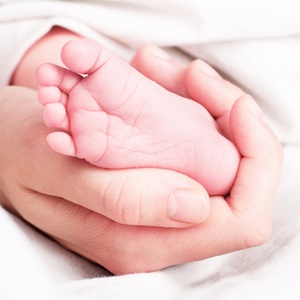
News24 previously reported on young Mason van Dyk who suffers from a rare and serious skin disorder called harlequin ichthyosis, which affects one in five million babies.
At birth, he was given between one and five days to live. But today five-year-old Mason has a Facebook page called "Little Mason" where his journey with harlequin ichthyosis is recorded.
But what is the genetic disorder that affects this boy?
What is harlequin ichthyosis?
The National Organization for Rare Diseases (NORD) defines harlequin ichthyosis as a severe genetic disorder that mainly affects the skin.
What causes harlequin ichthyosis?
According NORD harlequin ichthyosis is hereditary and is transmitted through a recessive gene.
NORD states that in recessive disorders, the condition appears when the person inherits the same defective gene for the same trait from each parent. If the individual receives one normal gene and one gene for the disease, the person will be a carrier but will not have the condition. There is a 25% risk per pregnancy to transmit the disease to the children if both parents are carriers of the disease.
What are the signs and symptoms?
Infants with harlequin ichthyosis are born with very hard, thick skin covering most of their bodies. The severely hardened skin forms large, diamond-shaped plates that are separated by deep cracks (fissures). The skin pulls so tightly that the shape of the eyelids, nose, mouth and ears are affected and the movement of the arms and legs restricted. The movement of the chest is also restricted, often leading to breathing difficulties and respiratory failure that can ultimately result in death.
How is it diagnosed?
According to the Foundation for Ichthyosis & Related Skin Types (FIRST), doctors use genetic testing in infants to determine the type of ichthyosis they actually have. This will determine the type of treatment and condition management for the patient.
Another reason to have a genetic test is if you or a family member want to have children. Genetic testing, which would ideally be performed first on the person with ichthyosis, is often helpful in determining a person's and their relatives' chances to have a baby with ichthyosis.
Genetic testing will also establish whether parents with a baby with harlequin ichthyosis have a chance of having another baby with the condition.
Results of genetic tests, even when they identify a specific mutation, can rarely tell you how mild or how severe a condition will be in any particular individual. There may be a general presentation in a family or consistent findings for a particular diagnosis, but it's important to know that every individual is different and that the treatment for the condition will depend on this result.
Why can this condition be deadly?
The Genetic Home Reference of the US National Library of Medicine states that the skin normally forms a protective barrier between the body and its surrounding environment. In children with harlequin ichthyosis, this barrier is disrupted, which makes it difficult for the infant to control water loss and regulate body temperature. Where normal people can cool down through sweating, people with severely thickened skin can’t.
Infants with harlequin ichthyosis often experience dehydration as their skin barrier can't regulate sweat and moisture like normal skin, and they can develop life-threatening infections in the first few weeks of life.
It used to be rare for affected infants to survive. However, with intensive medical support and improved treatment, babies with this disorder now have a better chance of living into childhood and adolescence.
Is there any cure?
Unfortunately, there is no cure. Harlequin ichthyosis requires ongoing treatment such as an intensive daily skincare regime to keep the thickened skin supple, as cracks and fissures can lead to serious infections.
According to NORD the most severe cases of harlequin ichthyosis are treated with oral retinoids, a medication consisting of vitamin A, which speeds up cell turnover.
What is the prognosis?
In the past, infants would often only live for the first few days, but today children with harlequin ichthyosis can live long and fulfilling lives with the advances in neonatal and medical care.
According to FIRST, most people with ichthyosis lead normal lives. While there may be some difficulties related to the disorder – including itching and risk of infection, there is no correlation between mental ability and the disorder.
Image credit: iStock




 Publications
Publications
 Partners
Partners











